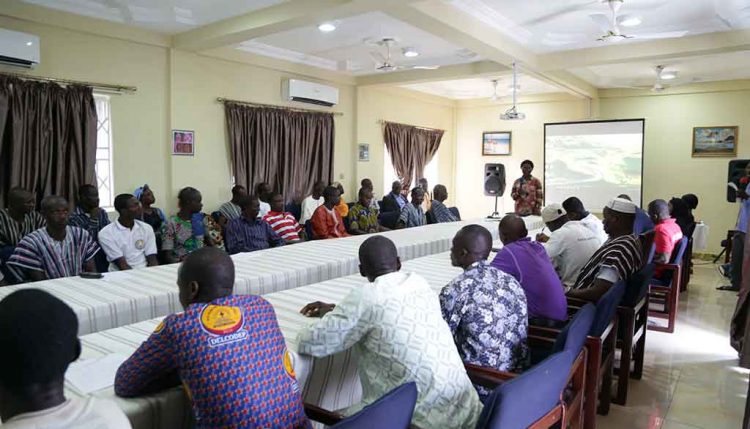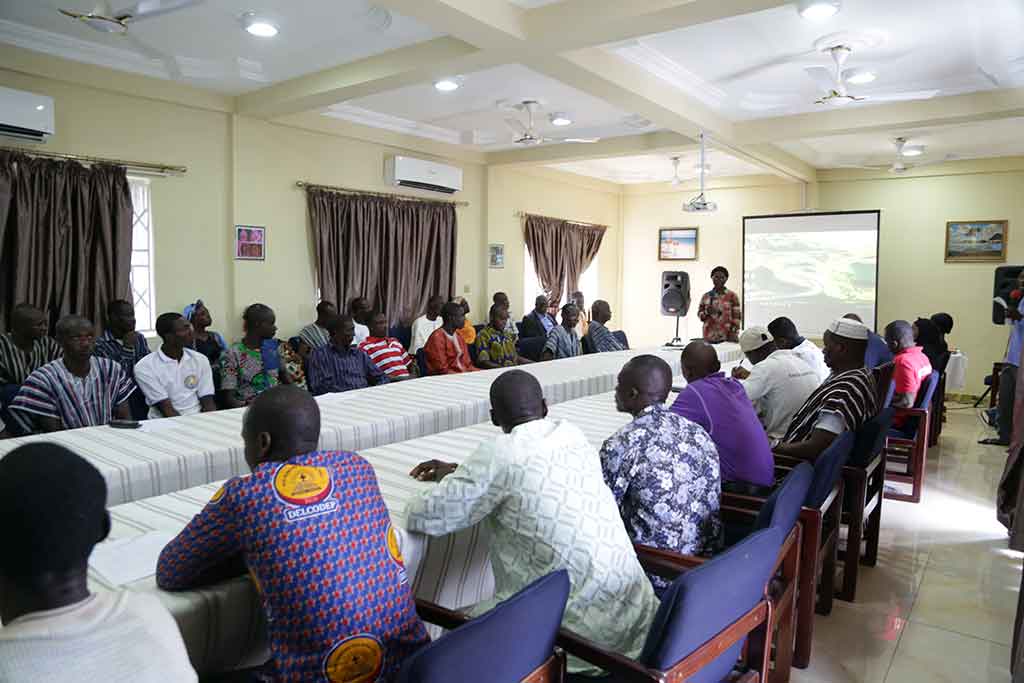
YIIFSWA organizes workshops to share experiences among yam farmers after exchange visits
The goal of the Yam Improvement for Income and Food Security in West Africa (YIIFSWA) project is to work towards its 10-year vision of doubling the incomes from yam for three million smallholder farming families who depend on the crop in West Africa, and contribute to food security for producers and consumers. In the next five years the project has opted to increase yam productivity (yield and net output) by 40% for 200,000 smallholder yam farmers (90% with less than 2 acres) in Ghana and Nigeria; and deliver key global good research products that will contribute to the longer term vision of improving yam productivity and livelihoods of yam dependent farmers.

To reach these targets, the project seeks to make quality seed more available and affordable to yam farmers by changing the traditional methods of production using dual crops. Training have been organized at different levels for stakeholders involved in seed yam production. For farmers this has mostly been done through demonstration and learning plots. Trainees were encouraged to separate seed from ware yam production so that the seed could be accorded the appropriate management required to improve quality.
To reinforce the need to establish seed production systems, stakeholders were invited to visit seed yam farmers and traders of Illushi, Edo State of Nigeria, whose economic activities are centered on seed yam production and marketing. Illushi, located on the banks of River Niger, is a place with many dedicated seed yam farmers, producing on a large scale to feed a market dedicated solely to the sale of seed yams. The lessons and practices that YIIFSWA seeks to communicate to its informal seed yam system farmers and traders are largely present there.
Fifty-eight participants comprising yam farmers, technical staff of research institutes, seed companies as well as agricultural extension officers from Ghana and other parts of Nigeria visited Illushi. They went in two batches; the first set visited seed yam fields in production in September 2015, while the second batch went in early May 2016 to observe marketing of the produce.
A lot of interaction took place between the hosts and visitors, who were greatly impressed with what they saw and heard. During the vegetative growth stage, they observed a healthy looking crop (no visible disease symptoms), clean fields, planting on ridges, and medium to large-scale production. In the market they saw well-graded seed tubers that were neatly displayed for sale by lots of 200 tubers per variety. The comments of the visitors indicated that the lessons learned during the one-day interaction were more than those learned during months of training that many of them had received.
A series of workshops was thus organized on 16−28 May in Nigeria and Ghana for farmers who visited Illushi to share their experiences with those who were not privileged to be part of it. So far, six of such workshops have taken place; three each in Nigeria (Abuja, Idah, and Isukwato) and Ghana (Tamale, Kintampo, and Atebubu-Amantin) involving a total of 283 participants. With the new knowledge gained on the seed yam enterprise, participants came up with different ideas and strategies in starting seed yam markets in their localities.
The workshops were coordinated by Beatrice Aighewi, the Yam Seed System Specialist of YIIFSWA and organized by the Country Managers of Nigeria and Ghana, John Ikeorgu and Haruna Braimah, respectively
